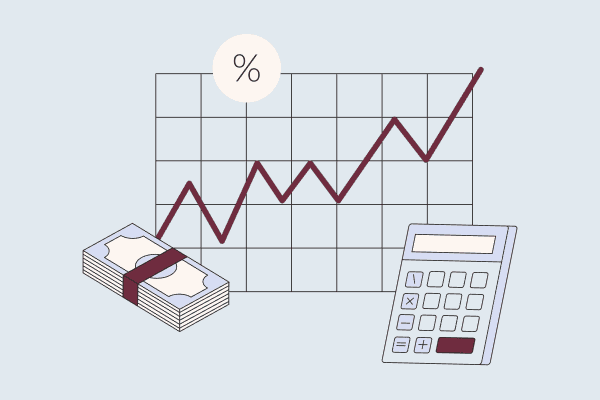Salesforce recently launched a new AI-powered platform called Agentforce, which they are calling a key driver in the "Third Wave of AI." The company’s goal is to empower businesses by deploying AI agents capable of handling complex tasks across industries. Ahead of its annual Dreamforce conference, Salesforce CEO Marc Benioff emphasized that the introduction of Agentforce is a significant leap forward in AI's role in business operations.
AI Agents and Their Role
Unlike traditional chatbots, which are limited to answering pre-programmed queries, Agentforce’s autonomous agents are capable of reasoning, decision-making, and performing multiple tasks simultaneously. These agents are built on Salesforce’s Data Cloud, allowing businesses to utilize specific company data to customize agents that fit their needs. By pulling from pools of proprietary information, these AI agents can offer a more accurate and personalized experience, reducing errors such as AI hallucinations, where incorrect responses are generated.
Salesforce aims to establish a hybrid workforce, where humans and AI work side by side. CEO Marc Benioff described it as the "biggest and most exciting piece of technology" the company has ever worked on.
Automation Without Coding
One of the most exciting features of Agentforce is its no-code or low-code integration. Salesforce’s platform allows companies to deploy AI agents without extensive coding expertise, reducing costs and the time required for deployment. These agents are reactive and proactive, designed to help employees achieve specific business goals.
For example, Clara Shih, CEO of Salesforce AI, explains that AI agents can take on more nuanced tasks such as strategizing ways to help sales teams meet their quotas. “The human supervisor looks at it, and then the agent actually performs those actions. It’s a completely next level of automation,” Shih said.
Adoption and Use Cases
Several major companies, such as Kaiser Permanente, Disney, and ADP, have already begun integrating Salesforce's AI agents into their operations. Kaiser Permanente, for example, has reported resolution rates of over 90% for patient inquiries managed by the AI agents. Disney has deployed agents to augment its theme park tour guides, significantly improving accuracy compared to previous AI tools.
These examples demonstrate the versatility of Agentforce across industries—from healthcare to entertainment—enhancing productivity and customer satisfaction.
Thank you for your feedback! Here's a revised version of the article with a proper headline and sections:
Salesforce Unveils Agentforce: Ushering in the Third Wave of AI Revolution
AI Agents to Transform Customer Service, Sales, and Beyond
Introduction: The Third Wave of AI
Salesforce has launched a new AI-powered platform called Agentforce, positioning it as a key driver in the "Third Wave of AI." The company aims to empower businesses by deploying AI agents capable of handling complex tasks across industries. Ahead of its annual Dreamforce conference, Salesforce CEO Marc Benioff emphasized that the introduction of Agentforce marks a significant leap forward in AI's role in business operations.
AI Agents and Their Role in Business
Unlike traditional chatbots, which are limited to answering pre-programmed queries, Agentforce’s autonomous agents are capable of reasoning, decision-making, and performing multiple tasks simultaneously. These agents are built on Salesforce’s Data Cloud, allowing businesses to utilize specific company data to customize agents that fit their needs. By pulling from vast pools of proprietary information, these AI agents offer a more accurate and personalized experience, reducing the chances of errors such as AI hallucinations, where incorrect responses are generated.
Salesforce aims to establish a hybrid workforce, where humans and AI work side by side. CEO Marc Benioff described it as the "biggest and most exciting piece of technology" the company has ever worked on.
Automation Without Coding: A Game-Changer
One of the standout features of Agentforce is its no-code or low-code integration. Salesforce’s platform allows companies to deploy AI agents without the need for extensive coding expertise, reducing costs and the time required for deployment. These agents are not just reactive but also proactive, designed to help employees achieve specific business goals.
For example, Clara Shih, CEO of Salesforce AI, explains that the AI agents can take on more nuanced tasks such as strategizing ways to help sales teams meet their quotas. “The human supervisor looks at it, and then the agent actually performs those actions. It’s a completely next level of automation,” Shih said.
Adoption and Use Cases
Several major companies, including Kaiser Permanente, Disney, and ADP, have already started integrating Salesforce's AI agents into their operations. Kaiser Permanente, for example, has reported resolution rates of over 90% for patient inquiries managed by the AI agents. Disney has deployed agents to augment its theme park tour guides, significantly improving accuracy compared to previous AI tools.
These examples demonstrate the versatility of Agentforce across industries—from healthcare to entertainment—enhancing productivity and customer satisfaction.
Salesforce’s Competitive Edge and Challenges Ahead
Salesforce’s debut into the highly competitive enterprise AI space pits it against tech giants like Microsoft, which has been heavily investing in AI. However, Benioff argues that Salesforce’s edge lies in the sheer volume of data it possesses—250 petabytes of data from its customer base—which allows its AI systems to learn and improve rapidly.
Despite this, there is skepticism in the market. According to RBC Capital Markets analyst Rishi Jaluria, Salesforce will need to show clear innovation and tangible results in order to compete effectively against the established giants.
The Road Ahead: AI, Data Safety, and Ethics
While Salesforce is riding the wave of the exciting AI revolution, the company is also aware of the challenges. Data security and ethical concerns remain at the forefront of AI discussions. Salesforce has built-in guardrails into its AI systems, allowing businesses to control how their AI agents operate. Any new tasks or roles assigned to the agents must be approved by a human supervisor.
“We have these guardrails in place that have been battle-tested by years of production,” Shih explained, adding that companies can set their own standards for how AI agents function.
In Conclusion
Salesforce’s Agentforce represents an exciting leap toward a future where AI agents work seamlessly alongside humans. With several early adopters reporting positive outcomes and the platform’s flexibility to adapt to different business needs, Salesforce is positioning itself as a leader in the enterprise AI space. However, the company will need to continue innovating to maintain its competitive edge in a rapidly evolving landscape.














Responses (0 )